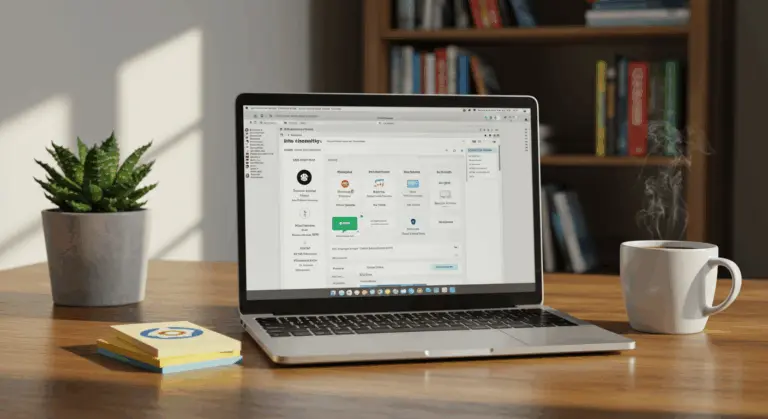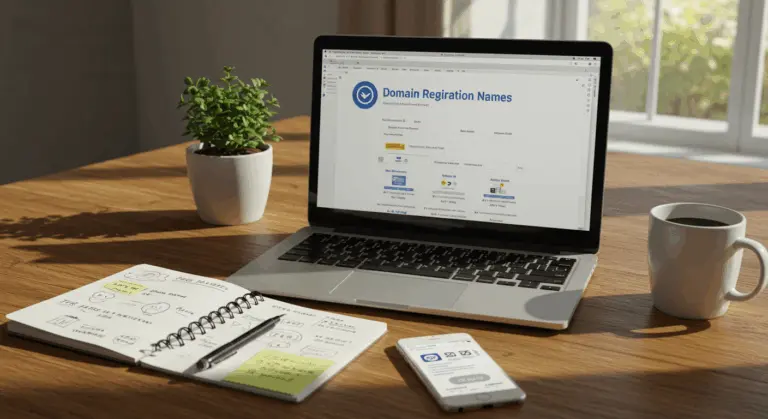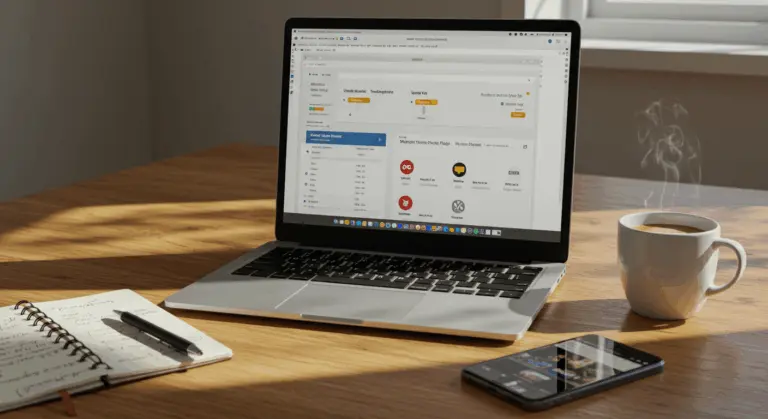Understanding Anonymous Website Hosting
Anonymous website hosting represents a specialized service that enables individuals and organizations to establish their digital presence while protecting their personal identity. Unlike conventional hosting arrangements, where domain registration exposes your private details—name, address, phone number, and email—through the publicly accessible WHOIS database, anonymous hosting creates a protective barrier between you and the digital world.
This exposure poses significant risks for numerous legitimate users requiring identity protection, such as:
-
Journalists reporting on sensitive topics.
-
Political activists in restrictive regimes.
-
Whistleblowers exposing misconduct.
-
Privacy advocates.
-
Business owners protecting competitive intelligence.
These services address these concerns through sophisticated privacy-enhancing technologies and strategic operational practices.
Anonymous web hosting operates through several sophisticated privacy mechanisms:
Anonymous hosting focuses on protecting legitimate privacy interests—not facilitating illegal activities. These services span from basic WHOIS protection to comprehensive identity-shielding solutions, enabling you to publish content or operate a business without sacrificing your personal privacy.
Top Providers for Anonymous Hosting
When evaluating anonymous hosting providers, several critical factors demand careful consideration:
Multihost delivers anonymous VPS hosting that combines exceptional speed with excellent reliability. This makes it particularly attractive for websites and applications demanding both high performance and stringent privacy protection, all while maintaining competitive pricing structures.
Based in Iceland—a jurisdiction renowned for its robust privacy legislation—OrangeWebsite.com provides an additional shield against data requests and censorship attempts. The company’s strong privacy stance attracts among security-conscious individuals.
Fokine focuses on user anonymity with infrastructure designed to protect identities. The service reinforces privacy through cryptocurrency payment acceptance and maintains a strict no-logs policy.
Calla – Domain Registration and Hosting
Calla (Neal.la), founded by one of The Pirate Bay’s creators, developed a unique approach to anonymous domain registration and hosting. Rather than relying solely on traditional WHOIS protection, it employs a unique ownership model that delivers comprehensive privacy coverage.
Here’s how it works: Calla purchases and legally owns the domain on your behalf. Their information appears in public records, while you maintain complete control over the domain’s usage. This provides strong privacy protection.
Calla protects user privacy through several key practices:
-
Anonymous Payments: It accepts cryptocurrencies, including Bitcoin, Litecoin, and Montero, to eliminate the financial trail.
-
Private Signup: The service does not require personal information at signup.
-
Minimal Data Retention: It maintains only minimal records about users.
Beyond domain services, Calla provides privacy-focused hosting solutions. The secure infrastructure includes DDoS protection and additional safeguards to ensure consistent reliability. This combination makes it one of the most comprehensive domain and hosting packages available for those seeking complete anonymity.
1984 Hosting – VPS Solutions for Privacy
Named after George Orwell’s dystopian masterpiece, 1984 Hosting offers strong VPS solutions tailored for privacy-conscious users. Its Icelandic base provides the advantage of operating under the country’s strong data protection laws, creating an additional legal shield for customers.
A key privacy feature is its cryptocurrency acceptance, including Bitcoin and other digital currencies. This enables truly anonymous payments—a crucial element for private hosting setups that traditional, traceable payment methods simply cannot provide.
The VPS solutions scale seamlessly from basic packages to high-performance servers. Every plan includes DDoS protection, regular backups, and operating system flexibility, complemented by full root access for complete server configuration control.
What sets apart 1984 Hosting is its philosophical dedication to privacy. This commitment manifests through a strict no-logging policy and principled resistance to data requests. The company’s transparency reports further establish it as an excellent choice for users seeking VPS solutions that blend technical flexibility with strong ethical foundations.
How to Set Up an Anonymous Website
Creating an anonymous website requires careful planning across several critical phases:
Choosing the Right Domain Name
Selecting a domain name for anonymous websites goes beyond basic branding. The real challenge lies in strategic selection and registration that prevents your personal information from surfacing in public WHOIS records.
Domain extensions (TLDs) require careful evaluation, as privacy protection varies significantly. TLDs from privacy-conscious countries like .is (Iceland), .ch (Switzerland), or .to (Tonga) often provide superior protection compared to .com or .net, which may impose stricter registration requirements.
Employ specialized anonymous registration services like Calla, which assumes legal ownership in WHOIS records while preserving your complete control. This approach provides much stronger privacy protection than conventional WHOIS protection services.
Implement these essential registration practices:
-
Choose a Neutral Domain Name: Avoid terms connected to your identity, interests, or location.
-
Pay with Cryptocurrency: Use crypto to eliminate the financial trail.
-
Use an Anonymous Email: Register with a private email address for all communications.
These precautions create multiple layers of protection, making it very difficult to trace the website back to your actual identity.
Using VPNs and Cryptocurrency for Anonymity
VPNs and cryptocurrency are essential for anonymous hosting operations. A good VPN hides your real IP address by routing traffic through encrypted connections, preventing both hosting providers and site visitors from determining your actual location during site management activities.
When choosing a VPN, focus on these essential criteria:
-
Policy and Jurisdiction: Choose providers with strict no-logs policies based in privacy-friendly countries.
-
Paid Services: Avoid free VPNs, which often monetize user data or offer weak protection.
-
Advanced Features: Look for kill switches, multi-hop connections, and support for secure protocols like OpenVPN or WireGuard.
Cryptocurrency payments effectively eliminate the financial paper trail that credit cards inevitably create. While Bitcoin enjoys widespread acceptance, its transactions remain publicly visible and merely pseudonymous. For genuine anonymity, privacy-focused currencies like Montero work better, using advanced encryption to hide transaction details completely.
To achieve maximum payment anonymity:
-
Acquire cryptocurrency without identity verification.
-
Use a new wallet address for each transaction.
-
Implement coin mixing or tumbling services to break the link to your identity.
Merging these cryptocurrency strategies with VPN usage creates strong identity protection.
Risks and Considerations in Anonymous Hosting
Anonymous hosting, despite its advantages, comes with risks that need careful thought. Provider trustworthiness represents a primary concern—your hosting company maintains access to your files and could become a critical vulnerability if they secretly maintain logs or face legal compulsion to surrender user data.
Various technical vulnerabilities can similarly undermine your anonymity:
-
IP Leaks: Accessing your server without a VPN can expose your real IP address.
-
Content Metadata: Files uploaded to your site may contain identifying metadata.
-
Software Flaws: Vulnerabilities in your CMS or plugins can be exploited to reveal server or user information.
Balancing privacy with affordability presents another significant challenge. The most secure anonymous hosting solutions typically command premium prices compared to conventional alternatives. Budget constraints may push users toward less secure providers, accidentally creating security risks.
Reliability and performance considerations also merit attention. Privacy-enhancing technologies like Tor hosting can result in reduced speeds and intermittent connectivity issues—a necessary trade-off for enhanced anonymity. Additionally, many anonymous providers deliberately limit customer support to minimize interactions that could potentially compromise user anonymity.
Legal Risks and Copyright Violations
Anonymous hosting doesn’t confer legal immunity. While it creates substantial obstacles to identification, it cannot guarantee protection against determined legal investigations. Hosting illegal or copyrighted material can result in severe legal consequences.
Copyright infringement represents a particularly common risk. Hosting unauthorized content—movies, music, software, or other protected materials—can trigger aggressive enforcement actions from rights holders. These organizations often employ specialized tracking firms to identify operators, regardless of anonymity measures.
Jurisdictional complexities further complicate matters. Your physical location, server location, and visitors’ locations can each create legal exposure under different national legal frameworks. Mutual legal assistance treaties between countries can also circumvent protections offered by offshore hosting arrangements.
To minimize these legal exposures:
-
Ensure Compliance: Adhere to all applicable laws in relevant jurisdictions.
-
Research Requirements: Understand the legal rules for your content type and audience.
-
Select Reputable Providers: Choose hosts with a strong track record of protecting user privacy and transparent legal policies.
Remember: anonymous hosting serves legitimate privacy needs, not as a shield for illegal activities—even advanced setups may not withstand thorough legal investigation.
Maintaining Anonymity Online
Maintaining anonymity requires ongoing vigilance, not merely initial setup. Keep your digital activities strictly separate—never access your anonymous site from personal devices, networks, or accounts. Utilize a dedicated device or, at minimum, a separate, privacy-hardened browser profile.
Use your VPN consistently for every website-related activity. Configure its kill switch to prevent accidental IP exposure during connection drops, and routinely test your setup for potential leaks using specialized online diagnostic tools.
Communication channels need careful attention as potential security risks. Employ encrypted email services like ProtonMail or Tutanota alongside secure messaging applications such as Signal. Bear in mind that message content itself can reveal your identity, even when transmitted through secure channels.
Conduct regular privacy audits of your website and server infrastructure:
-
Check File Metadata: Scrub EXIF data from images that could reveal location or device info.
-
Manage Logs: Minimize or disable server logs where possible.
-
Monitor Connections: Review external connections to third-party services that could be used for tracking.
-
Update Software: Promptly patch all software to fix security vulnerabilities.
Finally, practice good operational security through careful habits:
-
Use Strong Credentials: Employ unique, strong passwords for each service, stored in an encrypted password manager.
-
Enable Two-Factor Authentication (2FA): Use 2FA wherever possible.
-
Limit Information Sharing: Be cautious about sharing details in content, forums, or support requests that could reveal your identity.
Maintaining anonymity requires constant attention—it’s an ongoing process, not a one-time setup.







